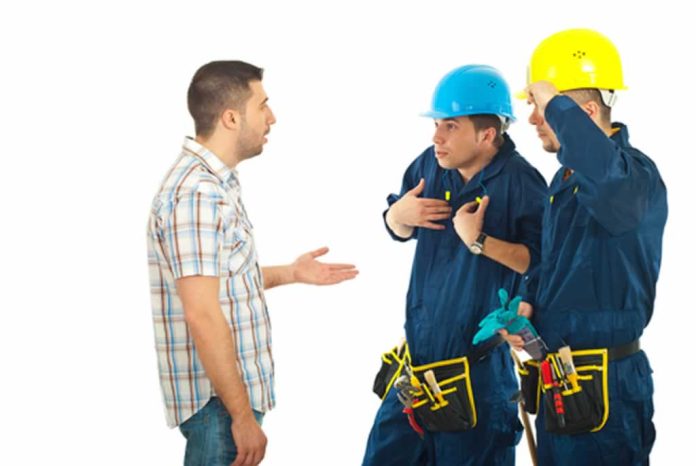Beware of Scams: Fake Contractors Target Los Angeles Burn Areas
In the aftermath of wildfires that have ravaged parts of Los Angeles, homeowners face the daunting task of rebuilding their lives and properties. Unfortunately, this vulnerable time often becomes a prime opportunity for fraudulent contractors and scammers to take advantage of unsuspecting victims. With many residents desperate to repair their homes, it’s essential to be vigilant and informed to avoid falling prey to these predatory schemes.
The Threat of Fake Contractors
After major disasters like wildfires, the demand for construction and repair services skyrockets. Scammers posing as legitimate contractors exploit this urgency, offering quick fixes or too-good-to-be-true deals. These fake contractors may claim to specialize in fire damage restoration, roof repairs, or rebuilding homes. They often show up uninvited, offering their services door-to-door or through unsolicited phone calls and advertisements.
One common scam involves demanding large upfront payments before any work begins. Once the money is collected, the so-called contractor disappears, leaving homeowners without recourse and no progress on repairs. Others might complete shoddy work using substandard materials, resulting in further damage and costly repairs down the line.
Red Flags to Watch For
To protect yourself from these scams, it’s crucial to recognize the warning signs of a fraudulent contractor:
- Unsolicited Offers: Be cautious of contractors who approach you without being called or hired. Legitimate contractors rarely rely on unsolicited outreach.
- High-Pressure Tactics: Scammers often pressure homeowners into making quick decisions, claiming limited availability or urgent deadlines.
- Lack of Licensing: Fake contractors typically lack proper licenses or certifications required in California. They may avoid providing documentation or show forged credentials.
- Requests for Large Upfront Payments: Legitimate contractors usually require a reasonable deposit and structured payments tied to project milestones, not an upfront lump sum.
- No Written Contracts: A reliable contractor provides a detailed written agreement outlining the scope of work, timeline, materials, and costs.
- Suspiciously Low Bids: While it’s natural to look for cost-effective options, quotes significantly lower than others should raise suspicion. These may indicate cut corners or outright scams.
Protecting Yourself and Your Community
To avoid becoming a victim, take proactive measures when hiring contractors:
- Verify Licensing and Insurance: Check the contractor’s license on the California Contractors State License Board (CSLB) website. Ensure they carry proper insurance to protect against liabilities.
- Request References: Ask for references from previous clients and follow up to confirm the quality of work and reliability.
- Avoid Cash Payments: Use checks or credit cards to create a payment record, and never pay the full amount upfront.
- Get Multiple Quotes: Comparing estimates from several contractors can help you spot inconsistencies or suspiciously low bids.
- Report Suspicious Activity: If you encounter a potential scammer, report them to the CSLB or local law enforcement to protect others in your community.
Final Thoughts
Rebuilding after a wildfire is an emotional and stressful process. Scammers prey on this vulnerability, but staying vigilant and informed can help you avoid falling victim. By taking the time to thoroughly vet contractors and insisting on proper documentation, you can protect your investment and ensure your home is repaired by qualified professionals.
Remember, if a deal sounds too good to be true, it probably is. Prioritize quality, reliability, and transparency to safeguard your recovery journey.

